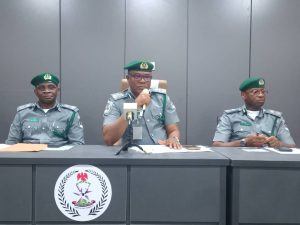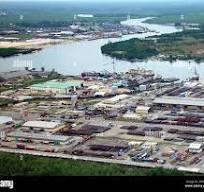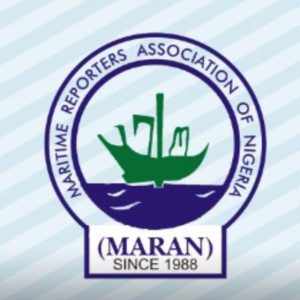By Enyeribe Anyanwu
Like the cat with nine lives, the Coast Guard Bill has continued to re-surface at every national assembly. Despite dying several times at the previous assemblies, the bill re-surfaced in the present senate and has scaled through the second reading.
Sponsored by Senator Wasiu Eshilokun (APC, Lagos), the bill seeks a legislation that will make the Nigerian Coast Guard a full-fledged military service and a branch of the Armed Forces of Nigeria, but domiciled in the Ministry of Marine and Blue Economy.
Last week, December 5, 2024, the controversial bill came up for public hearing. As usual, there was palpable tension as the proponents and opponents of the bill traded words. But one discernable thing about the public hearing was that, unlike the previous hearings on the bill in the past assemblies, there appears to be a shift by some individuals and institutions that hitherto presented serious opposition to the bill.
Prior to the present, maritime lawyers had been unanimous in opposing the bill. This time, some are for, while some are against. Similarly, NIMASA which is known to be an antagonist of the bill –as the bill is injurious to it –and which used to, in one way or the other voice its opposition, is keeping deafening silence this time around.
Curiously too, one of the agency’s past Directors-General was one of those who expressed strong support for the bill unlike before. Maritime observers believe, that this time, serious lobbying and private visits may have taken place, leading to shift in opinions and the support the controversial bill garnered at the public hearing.
Leading the proponents of the bill was the Minister of Marine and Blue Economy, Adegboyega Oyetola. The minister told the senate and fellow participants at the public hearing that the establishment of a national coast guard would strengthen the collaboration between his ministry and the Nigerian Navy in safeguarding Nigerian maritime domain as it is done in other climes.
While giving credit to the Nigerian Navy for its achievements in safeguarding the Nigerian maritime milieu and giving Nigeria a good image worldwide, he cited the collaboration between the ministry and its agency–the Nigerian Maritime Administration and Safety Agency (NIMASA) in the Deep Blue Project which has produced great results with zero piracy in Nigeria’s territorial water in the last three years. “However, he maintained, “there is a need to further complement the efforts of our Navy as it is done in other climes.
Oyetola said, “According to a 2009 publication by the Africa Centre for Strategic Studies, 15 out of the 21 independent maritime nations in sub-Saharan Africa have dedicated coast guards, that identify themselves as such and none has our population and many of these countries do not have the length of our inland waterways or coastline.
“Also, a 2015 publication by the Institute for Security Studies of the National Defence College of Nigeria highlighted the impact of activities such as illegal, unregulated and unreported fishing in the inland waters, coastal and marine fishing zones in sub-Saharan Africa. These illegal activities are estimated to cost the region approximately between 3 billion dollars to 5 billion dollars a year in lost revenue.”
Another reason according to Oyetola, is the Lagos – Calabar Coastal Highway which he described as a “major game changer” for the nation’s entire coastline. He said the project is expected to unlock the region’s blue economy potential– hotels, beach resorts, water parks, eco-parks, ferry services, hospitality industries, industrial parks etc. along the coastline.
The minister said that such an increase in economic activities would require a dedicated institution that would be responsible for ensuring maritime safety, search and rescue, environmental protection and the enforcement of civil maritime laws.
According to him, the spate of boat mishaps within the nation’s inland waterways is also a strong justification for the need to strengthen the country’s maritime safety and the enforcement of maritime laws and regulations in the inland waterways. “This is necessary to boost maritime trade and trans-shipment in Nigeria,” he observed.
“Also, considering Nigeria’s critical position in the maritime domain on the continent and globally, the establishment of a National Coast Guard will further increase our standing in the comity of maritime nations. This will no doubt attract foreign support and assistance.”
Oyetola said establishment of the coast guard was aimed at maritime safety–by establishing clear protocols, enforcing safety regulations, and overseeing navigation routes in our inland waterways.
He maintained that the Coast Guard would play a critical role in safeguarding lives, property and trade within Nigeria’s coastal and inland waterways. The minister said that the Coast Guard would respond rapidly to maritime emergencies, conducting timely and efficient search and rescue operations.
“Through initiatives focused on conservation and the protection of marine ecosystems, the Coast Guard will support Nigeria’s commitment to environmental stewardship, safeguarding marine biodiversity for future generations,” he stated.
The minister said the agency will enforce Civil Maritime Laws–laws that govern civil maritime activities, such as fishing laws and regulations, conventions on pollution and other civil maritime offences.
“This function will support sustainable resource management, protect Nigeria’s waters from illegal exploitation and align with international best practices for civil maritime governance,’’ the minister argued.
Apparently to counter one of the key points against the bill, Oyetola spoke on inter-agency collaboration with military/paramilitary agencies. He said his ministry was cognizant of the traditional and important roles being played, especially by the Nigerian Navy and the armed forces to protect the nation’s waterways and maritime assets.
He said that the National Coast Guard would ensure effective collaboration with other military and paramilitary agencies.
“To this end, we advocate the setting up of effective and coordinated machinery for seamless collaboration with the Nigerian Navy and other armed forces, as well as key agencies in the country, to further enhance the protection of our maritime resources.
“This will include technology and resource sharing, joint maritime exercises, missions and training to enhance maritime safety and foster cooperation.’’
Oyetola maintained that the Coast Guard would act as a vital complement to the Navy, fostering a safe and sustainable maritime environment in alignment with international best practices.
According to him, the initiative will strengthen Nigeria’s blue economy, protect Nigeria’s natural resources and ensure prosperity for future generations, assuring that a flexible, adaptive implementation strategy would be evolved to midwife the establishment of the agency.
Notable among those that backed the bill were Olisa Agbakoba, foremost maritime luminary and former president of the Nigerian Bar Association, Dr. Ade Dosunmu, former director-general of the Nigerian Maritime Administration and Safety (NIMASA), Jean Anishere, a maritime lawyer representing the Nigerian Bar Association and Ekwerre U. Ekwerre (Rtd), a former Flag Officer Commanding the Navy’s Training Command.
Speaking in favour of the bill, Agbakoba described it as timely, but demanded a review of its provisions to address certain gaps. He offered his expertise to ensure the draft reflects industry needs.
In the same vein, Ade Dosunmu threw his weight behind the bill, advocating a clear distinction between the Navy’s focus on blue-water operations and national defence, and the Coast Guard’s role in tackling maritime crimes along Nigeria’s 855-kilometre coastline to avoid duty overlap.
The former NIMASA DG cited international examples like the United States and China where well-defined roles between the Navy and Coast Guard ensure better maritime governance. He cautioned, however, against assigning duties such as hydrography and oceanographic research to the Coast Guard, saying such duties are better left to the existing agencies.
Sharing similar sentiments, retired naval officer, Ekwerre urged the Navy to focus on defence and diplomatic operations within Nigeria’s territorial waters and Exclusive Economic Zone, and leave law enforcement on inland waters to the Coast Guard.
Despite Oyetola’s long and strong arguments and those of his backers, the navy, some lawmakers, civil society, and other stakeholders rejected the bill, stressing that what was needed was strengthening of the existing marine agencies.
Rejecting the bill, the Nigerian Navy cited duplication of functions, security threats, incoherent crafting of the Bill, resource constraints, economic imperatives, amongst others.
The Chief of Training and Operations, Nigerian Navy, Rear Admiral Olusegun Ferreira, who represented the Chief of Naval Staff took time to analyze both Nigeria’s maritime security needs and global best practices, giving global examples of consolidated maritime security frameworks.
He said the United Kingdom does not have a Coast Guard with military powers similar to what was being proposed in the coast guard bill. “Rather, the Royal Navy is responsible for military defence and maritime security operations, including facial protection, and this is quoted from the House of Commons briefing paper of 2020.”
“On the other hand, the UK Coast Guard, is under the Maritime and Coast Guard Agency, which manages search and rescue and Occupational Safety.”
Rear Admiral Ferreira argued that, “Given Nigeria’s more regional maritime focus and resource constraints, creating a similar structure will lead to redundant functions and stretch limited resources.”
Senator Adams Oshiomhole, said Nigeria was living on borrowed funds, stressing that it was improper to take loan to establish a new agency.
A House member representing Ado/Okpokwu/Ogbadibo Federal Constituency of Benue State, Philip Agbese, said Nigeria needed to strengthen the existing marine agencies and institutions to function maximally instead of creating irrelevant agencies, whose duties are already being performed by others.
Other speakers who rejected the bill and urged the senate to drop it included: Dr. Emeka Akabogu, Honorary Secretary of Nigerian Maritime Law Association, Rear Admiral Chris Ezekobe (rtd.) and Igwe Ude Umanta, who spoke on behalf of coalition of other 10 Civil Society Groups.
It can be recalled that few weeks before the public hearing, a civil society organization, the Coalition in Support of National Security Advancement (CSNSA) had rejected the bill, citing national security concerns, economic implications, and constitutional conflicts.
The civil society group at a press conference argued that creating a new Coast Guard may duplicate existing duties of the Nigerian Navy, jeopardize national security, and reduce administrative effectiveness.
The group highlighted the economic burden of establishing a Coast Guard, which would require significant funding, potentially diverting resources from the Nigerian Navy.
Furthermore, the CSNSA emphasized constitutional issues, noting that the proposed Coast Guard contradicts Section 217 of the Nigerian Constitution, which recognizes only the Army, Navy, and Air Force as branches of the Armed Forces.
Instead of a coast guard, the CSNSA proposed strengthening the Nigerian Navy and establishing a civilian-controlled maritime agency to handle non-military duties.
The group said it was crucial to adhere to constitutional limits by making sure that any reorganization of Nigeria’s maritime security does not conflict with the 1999 Constitution.
“Adding a new branch without a constitutional amendment could lead to serious legal problems and threaten the rule of law. In Section 217 of the Nigerian Constitution, the existing framework gives the armed forces a defined structure and establishes the guidelines for Nigeria’s defense policy.
“In the event of a national emergency or conflict, concerns about the Coast Guard’s legal authority, responsibility allocation, and chain of command may surface in the absence of constitutional clarity.
“Furthermore, circumventing constitutional processes to create a new branch might erode the security services’ legal basis in Nigeria, which could result in disjointed command structures and inefficiencies within the armed forces.”
The CSNSA said it believes that improving marine safety through the reinforcement of Nigeria’s current security frameworks is a more viable and long-term solution than establishing a distinct coast guard.
“Establishing a new, independent Coast Guard may seem appealing on the surface, but the practical implications suggest that a more integrated, resource-efficient, and constitutionally aligned approach would be far more beneficial for Nigeria’s long-term security and economic stability,” the group submitted.
As the debate on to be or not to be continues, maritime observers are watching to see if the deathless coast guard bill will succeed this time, or if it will again find its way out of the national assembly –for good.
Photo: The Nigerian Senate





More Stories
How foreign shipping companies sustain War Risk Insurance on Nigeria and Gulf of Guinea nations
Unfolding Positive Developments at NPA
AFMESI: Rallying African coastal communities against climate change